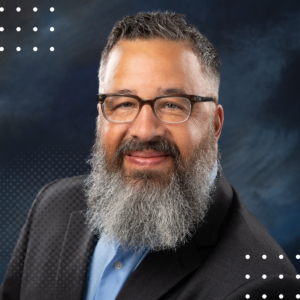Defining your ideal job will help both you and the recruiters
By Kevin Yerovsek, Director of Recruiting
For as long as I’ve been in recruiting, there has always been a common theme among new doctors about to graduate from residency: though they usually have their choice of job, they rarely have as clear an idea about what kind of job they actually want.
For some, this might be their first job search ever, or at least since their college summer job. New graduates from residency have been working so hard for so long to become good clinicians that they often haven’t thought much about what comes next.
Even when it comes to what is often the leading criterion—location—new graduates typically don’t have as much clarity as they might feel they do. I experience this all the time getting on the phone with emergency medicine and hospital medicine physicians who are just starting their careers.
Here’s my advice on what to do before they start these conversations. It doesn’t take long, but it will help both you and the recruiters to make the most of what are usually short introductory calls. And, it might just help them avoid making a bad decision they’ll come to regret in a few years’ time.
Clarify your location preferences
Here’s a typical exchange I might have with someone about to graduate from residency:
- New grad: I finished my residency in Washington D.C., so I want to be in a similar big-city environment.
- Me: Gotcha. So, do you want to stay in D.C.?
- New grad: Sure that would be nice. But I’m also looking at Miami, Seattle, Chicago, and Austin.
It doesn’t have to be a preference for a big city—many candidates are not that specific about their location preferences, nor have they taken the time to narrow down the location criteria further, or even better start ranking those criteria according to order of importance.
And it’s not just those interested in big cities. Whether it’s a nice suburban district with great schools, a dynamic mid-sized city, or small-town America, I recommend you get more specific.
For example, do you want something near water or mountains? Think about the built-in geographic constraints. Austin is a great town, but you’ll never be able to change the fact that it’s not on the ocean.
Another thing to consider is how close to that location you need to be. If you are set on Washington D.C. specifically, or any other high-demand city, you should know it’s going to be very competitive in and around—would you be willing to go to a bedroom community 45 minutes away? An hour away? If that’s too far, maybe you could think about another city a bit more off the radar, such as somewhere like Charlotte, or Oklahoma City, where you might be able to find a position right in the city.
Finally, you need to consider how important location is in the context of other considerations. It’s usually the most important factor, but also is it twice as important as the other things on your list? What if you could get the role right in the city you want, but it’s going to pay less than a similar role somewhere else?
That brings us to the next topic.
Let’s Talk Compensation
A lot of new graduates make the mistake of trying to compare compensation at two facilities as apples to apples—but this is almost never actually possible.
First, a big urban hospital in large demand is going to pay less than a small-town community hospital. But second, total compensation, at the end of the day, is going to depend on things difficult to pin down ahead of time, such as how often you work and what the volume is, or what kind of shifts you take.
We’re going to devote an entire other post just to walking through the considerations around compensation, but for now, I just want to say that I recommend doing the work of defining your ideal work environment before you get to the compensation discussion. Once you have your other priorities straight, it’ll be much easier to weigh where comp fits in the calculus.
Other Considerations
Aside from clarifying your preferences around location, what other considerations are there?
Think about your ideal work environment:
- Practice setting. Do you want a busy trauma center, an academic setting, or a community hospital? Each has its own benefits and drawbacks. Talk to people you know who have worked in different settings and ask them specifically about how they were different from your residency environment.
- Clinical expectation. Do you want high acuity, low acuity, or something in between? Do you want a practice where you are always going to be a little busier? Or, do you want one where you get to practice certain skill sets?
- Development path. What are the mentorship and training opportunities available to you? Are you interested in developing leadership skills? Business skills? Are any of these available to you at the hospitals you’re considering?
- Practice culture. It’s often overlooked and hard to evaluate objectively, but the fact is that who you work with and the culture of the environment are often the single largest factors determining your long-term career satisfaction.
At the end of the day, it’s not going to be whether you make $10/hour more or less that determines your happiness, it’s going to be whether you feel you can thrive in that environment, whether you like the people you work with, whether the nurses and PAs are happy and like their jobs, and whether you feel empowered and property supported in your job and the day-to-day.
The call
When you have taken the time to get specific about what your ideal job and practice setting are, and ranked the different factors in
order of importance, it’s time to start scheduling calls.
Remember, just as your time is valuable, so is the recruiter’s time. Make sure to be somewhere quiet and free of distractions for your call. Be prompt, and have a notebook ready to take notes. You’re likely to do a lot of these, so it’s important to remember what you talked about and be able to refer back to earlier conversations when you’re ready to follow up.
As a recruiter, my job during these initial calls is to help you drill down as much as possible, so then you can hear what we’ve got to offer and make an informed decision.
Ready to talk? Feel free to reach out and schedule a 15-minute call with me directly.



